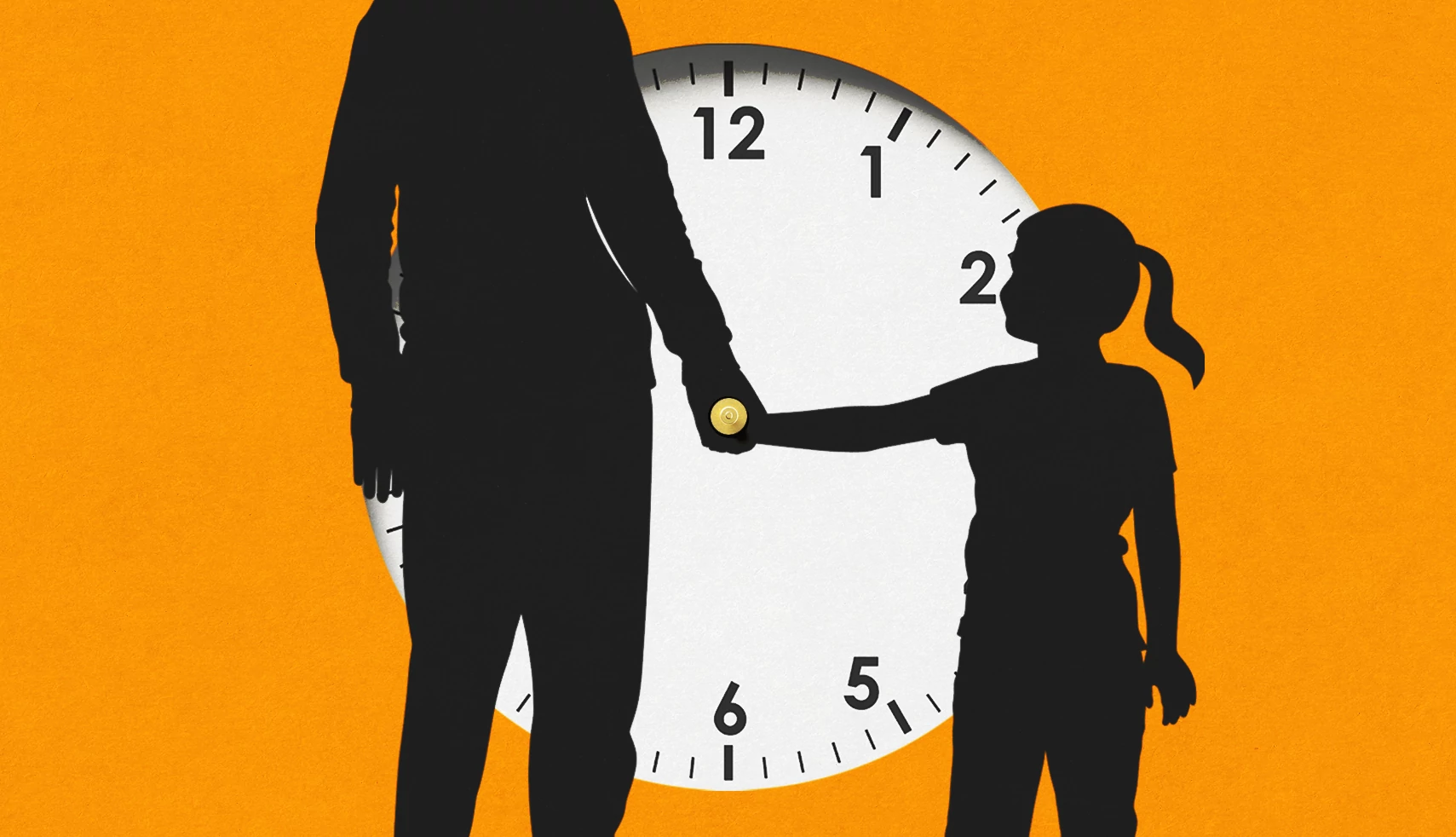AARP Hearing Center


Editor’s note: This story previously ran in The Arrow, AARP’s online magazine for Gen-X men.
There’s an illustration tacked to the wall of my office, drawn by my daughter Josephine. It’s a hand-drawn sketch of a walking stick, with the following caption: “In the corner the cane waits, ominously.”
I was 50 when I received this gift. Josie was 10.
I wish I could say that Jos, who is now 17, is my youngest child. She is my eldest. I also have a 15-year-old son, and another who just turned 10. Thus, I am part of that ambivalent and expanding demographic: AARP members with children still in grade school.
When I was in my 20s, I was certain I would become a dad in my 30s. I was 41 when Jude was born, and 46 when Irvo came along.
I’ve spent plenty of time lamenting that I didn’t start a family earlier. But it was probably for the best. Younger parents have more energy, and are better able to withstand the sleepless nights. But those of us who waited have a bit more perspective on life. In general, we’ve figured out our professional identities, or at least surrendered any delusions of grandeur.
Perhaps most important, we are quicker to recognize the basic absurdity of the parent-kid dynamic. It took me very little time to discern, for instance, that I was going to teach my child almost nothing by talking at them. No, they were going to learn, tragically, from how I behaved.
This dawned on me right about the first time one of my kids yelled “Hell, yeah!” as I barreled through a yellow light.
Being an older parent has also allowed me to accept that children are designed (again, rather tragically) to tell you truth, mostly about how old you are.
At age 7, Josie looked at me for a good 20 seconds and then issued the following appraisal: “You look like a dried-up old drumstick.” After staring into the mirror for a disappointing length of time, I was forced to conclude that she was right.


































































You Might Also Like
How I Learned to Want Less
Money won’t make us happy. But what if social connections don’t make us happy, either?
Here's How to Tame Your Fear of Death
Leaving this world doesn't have to be scary. Here's how to cope